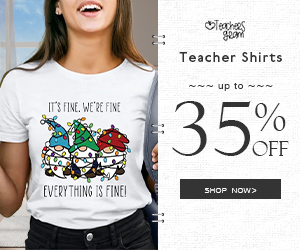The Beauty Of Encouraging Your Children To Read
/It can be quite apparent that encouraging your child to read is beneficial, as reading is beneficial for us all. That said, all children learn to read at their own pace, and we don’t mean to imply that if your child is struggling, or if they need extra support that you cannot make use of the advice in this list, or that you are somehow exempt from encouraging reading to a degree.
Credit: Pexels.
Reading, in whatever form and through whatever resource, is often helpful no matter what your child’s progress is. Inspiring a love for reading can be a worthwhile and quite important endeavour, not only because it helps you bond with your child, but because it helps them grow, develop and to become more independent thinkers.
But what are the benefits of reading to your child, or encouraging them to read? After you adopt the top reading strategies to teach your child in the best sense, we would also recommend inspiring them through understanding the following advice…
Credit: Pexels.
Reading Improves Imagination
Reading improves your ability to imagine situations. Books can provide children the means to think of settings they may have only ever seen depicted in films, but more raw, more real, more descriptive. Here they might learn about social relationships that have more depth than in cinema, or they may be able to learn about what it was like to live in a historical period. Of course, sometimes, reading for early children can give them a whimsical sense of fun and imagination, such as the very hungry caterpillar who munched his way across his environment to become a beautiful butterfly. This simple child’s story shows a child, in relatable and fun terms, the life cycle of a caterpillar. Books are more than just silly or fun, they regularly offer something that helps us interpret the world in a new way. That’s extremely healthy for a child to experience.
Reading Introduces Concepts, Themes & Questions
Reading helps us introduce new concepts, themes and questions to our world. It’s not hard to see how that can be useful for a child. For instance, a child’s story book might show an argument between two friends at school. It might deftly show how both children are right in their own minds, and might have their reasons for contributing to the conflict. But then, the book might show them that the better way to come to a resolution is to listen to one another, and that differences can be worked through to come to an understanding that preserves a friendship. Again, children learn through these examples. They’re worth discussing, and learning.
Credit: Pexels.
Reading Is An Achievement
Let us not forget that reading is an achievement. It helps us think more logically about things, and the act of reading helps us, and our children, become more literate. It allows us to see correct spelling, punctuation and grammar in action. Furthermore, reading gives us the chance to speak more competently, to form sentences well, and to focus on a piece of text, which is perhaps ever-less possible in this world of intense distractions.
Reading Improves Empathy
Reading improves empathy, especially in children. Of course, great actors in the television shows and movies they like can display a range of emotions, but there’s nothing quite like reading above them in a book, first person, or in going into depth about the extent and consequences of a difficult subject. Furthermore, books are often able to tackle difficult topics without being quite so explicit or framing the tension with such a dramatic flair.
Children can learn a lot from these stories, especially realizing that people, especially children, who live in different countries, historical periods or even in completely fictional worlds have similar motivations to them. It helps them think more openly and widely about people who may not be them. It helps them realise that the world is big and often quite interesting. It also allows children to feel like learning is fun and interesting, which it is. Learning isn’t just about book smarts or academia, even if learning sciences and maths is an essential part of growing up. Learning is also about understanding people, and social situations, two things that they will never be able to fully avoid as well as they might avoid algebra.
For that reason, and many more like it, reading is a phenomenal hobby, and something to truly work on with your child. We hope this advice has inspired you to do just that, and if it has (or if it is), we're sure you’re doing an amazing job.
Disclosure: This is a collaborative post.




























